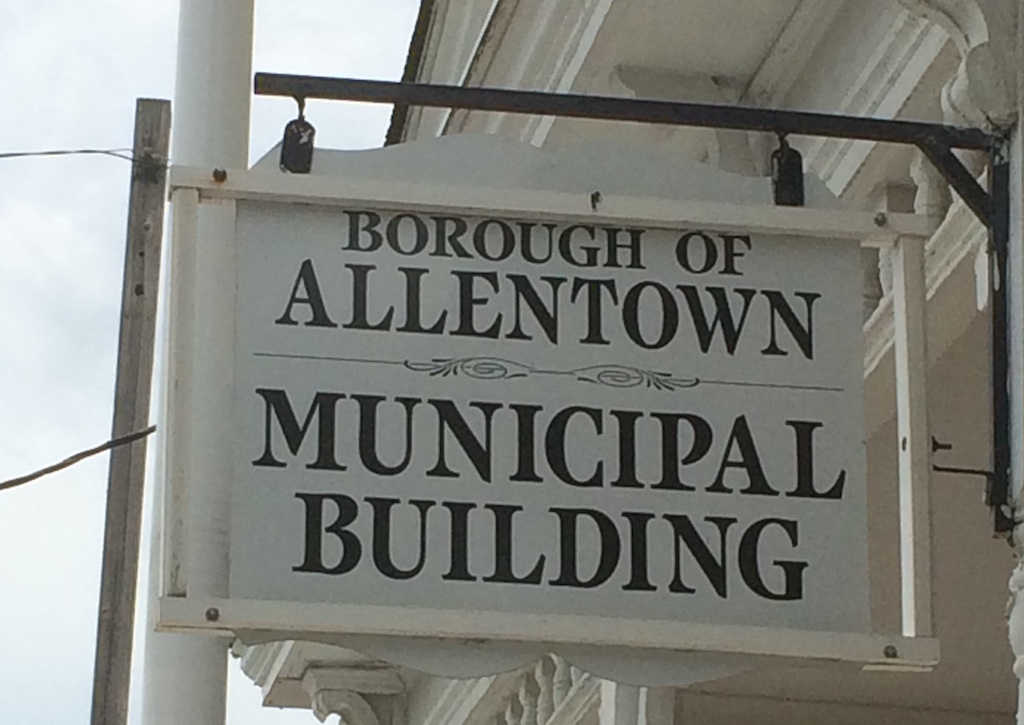ALLENTOWN – Residents reacting to a nonprofit organization’s expressed desire to create a group home for individuals who have special needs discussed various aspects of that proposal during the Allentown Borough Council’s Oct. 24 meeting.
Two weeks earlier, on Oct. 10, a representative of PennReach Inc., a nonprofit organization dedicated to the social mission of affordable housing, proposed rehabilitating a vacant residence at 25 Hamilton St. and establishing a group home for individuals who have special needs.
During her presentation, Krystal Odell, the chief executive officer of PennReach, asked the council to pass a resolution in support of the organization’s attempt to secure a grant that would allow it to move forward with the group home proposal. Odell said the organization will not be able to proceed if funds are not available.
The council did not pass a resolution of support on Oct. 10, nor did it pass a resolution on Oct. 24.
During the meeting on Oct. 24, Councilman Thomas Fritts said he would not vote to pass such a resolution until officials could fully vet PennReach.
“I would not support a resolution for a grant,” Fritts said. “We have an obligation to vet people. We have not taken time to do our homework properly. We need to slow down and talk to our planning and zoning (board) and to various organizations.”
No one on council made a motion to pass a resolution in support of PennReach’s attempt to obtain grant funding for its proposed group home project.
Borough Attorney Greg Cannon said PennReach “asked for a resolution of support and did not get it.”
He said a group home for six or fewer residents could be created without a public hearing. State law dictates who may and may not reside in such a residence, the attorney said.
“Whether or not the borough wants to support funding (that an organization may be seeking) does not mean (a group home) can’t be done,” Cannon said.
Mayor Greg Westfall and council members listened to members of the public who were reacting to PennReach’s proposal to establish a group home. Westfall said additional study is needed on the issue.
Jackie Giovanelli said if a group home is the residence of individuals who have mental illness, “it can be a nightmare.”
Speaking about a group home in a nearby community, Giovanelli said, “The kids (who live there) need help. The question is the people who are taking care of them. There is always a commotion going on. This is something (Allentown) really needs to look into. I understand there are laws (allowing group homes) … we already have a lot of chaos with (a nearby) Amazon (warehouse).”
Kurt Wayton, who is a special education teacher, said, “the clear majority (of residents in a group home) are not dangerous.” Regarding children who have special needs, he said, “You want to see them become independent.”
Wayton said he has searched and “could not find a single instance where PennReach has a complaint against them. This company is invested in taking care of people who cannot take care of themselves. I see rumbling around town from people who are scared of the unknown. Open your mind to the possibility that these people are safe.”
Wayton concluded his remarks by saying, “Open your heart to the possibility that PennReach, once vetted, will be able to take care of people when their parents are no longer able to do so.”
Diane Sterner, who is a member of the Allentown Planning Board and a 25-year resident of the community, said there are three points to keep in mind about a proposal such as the one PennReach has put forward:
• The legality of opposing a project such as a group home. Sterner said while the borough may be able to oppose funding, it may not have to right to reject the group home.
• The affirmative obligation to create housing for individuals with low income. Sterner said the Planning Board “is grappling with that issue now. We have been told our affordable housing obligation may be between 28 and 125 units, although it could be lower. We have some opportunities (to meet that obligation), but not a lot.”
• The moral obligation to “be open to working on that (PennReach project) and to be the welcoming place (her family) found it to be.”
According to its website, PennReach Inc., which is based in Allentown, was founded in December 2011 by housing industry leaders dedicated to the social mission of affordable housing.
PennReach says it will “help build neighborhoods by addressing the holistic needs of the individual by providing good quality affordable housing, employment opportunities, education, health services and training for all people in need – whether seniors, families facing challenges of low income and related problems, or people with special needs.”
One of the organization’s goals is “to empower all people in need,” including people who have special needs, “to have meaningful lives.”

